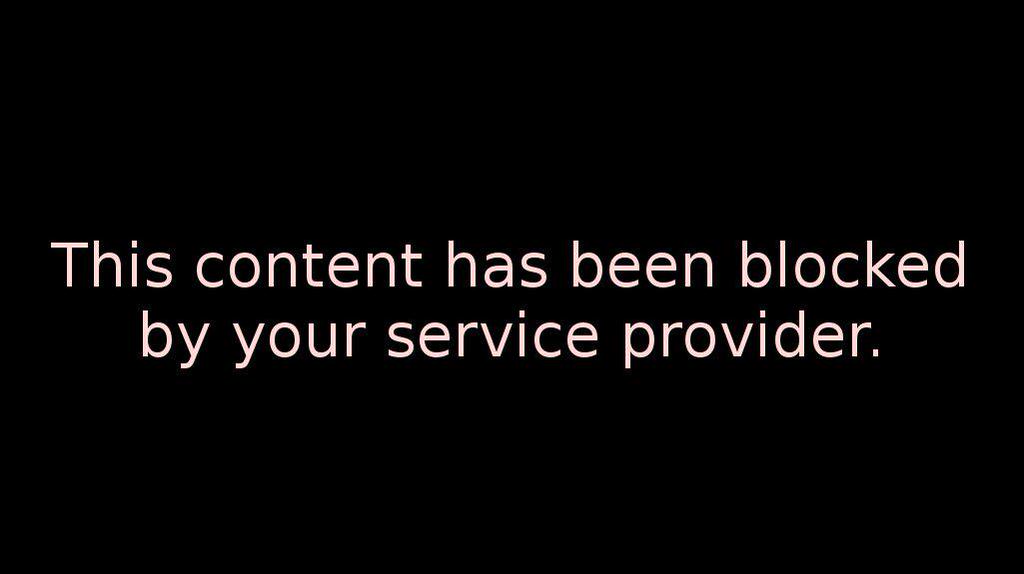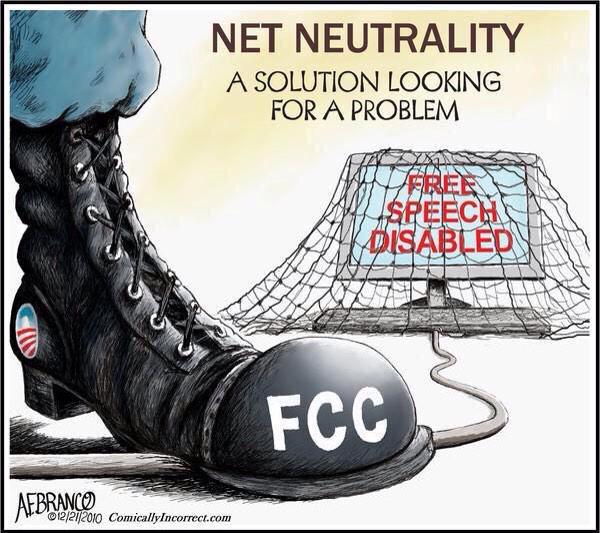 The US Department of the Internet is here, in all its chewy, buttery, governmental goodness. And you can bet the DOI will be jam-gepacked with all the efficiency, thrift, cheer, good will and responsiveness as your local DMV. Or, uh, any other federal government function.
The US Department of the Internet is here, in all its chewy, buttery, governmental goodness. And you can bet the DOI will be jam-gepacked with all the efficiency, thrift, cheer, good will and responsiveness as your local DMV. Or, uh, any other federal government function.
Like Congress.
 From APNews.com:
From APNews.com:
Regulators OK ‘net neutrality’ rules for Internet providers
by Anne Flaherty
WASHINGTON (AP) — Internet service providers like Comcast, Verizon, AT&T, Sprint and T-Mobile now must act in the “public interest” when providing a mobile connection to your home or phone, under rules approved Thursday by a divided Federal Communications Commission.
The plan, which puts the Internet in the same regulatory camp as the telephone and bans business practices that are “unjust or unreasonable,” represents the biggest regulatory shakeup to the industry in almost two decades. The goal is to prevent providers from slowing or blocking web traffic, or creating paid fast lanes on the Internet, said FCC Chairman Tom Wheeler.
The 3-2 vote was expected to trigger industry lawsuits that could take several years to resolve. Still, consumer advocates cheered the regulations as a victory for smaller Internet-based companies which feared they would have to pay “tolls” to move their content.
On its face, hey, “net neutrality,” what’s not to love about “neutrality,” right?
After all, it’s about “fairness.” Air quotes. “Fair” – “ness.”
But then there’s this:
Opponents, including many congressional Republicans, said the FCC plan constitutes dangerous government overreach that would eventually drive up consumer costs and discourage industry investment.
Initially, one can rest assured there will in fact be a new department created by the federal government (why not the Department of the Internet?), with its concomitant bloated bureaucracy, profligate spending, unfettered reach and brain-glazing indifference.
And as I wrote earlier, if the internet wasn’t broken, why the stultifying alacrity to allegedly “repair” it?
But here’s the real truth to the situation, and what these rules will have wrought:
Michael Powell, a former Republican FCC chairman who now runs the National Cable and Telecommunications Association, warned that consumers would almost immediately “bear the burden of new taxes and increased costs, and they will likely wait longer for faster and more innovative networks since investment will slow in the face of bureaucratic oversight.”
It’s not true that consumers would see new taxes right away. The Internet Tax Freedom Act bans taxes on Internet access, although that bill expires in October. While Congress is expected to renew that legislation, it’s conceivable that states could eventually push Congress for the ability to tax Internet service now that it has been deemed a vital public utility.
And why wouldn’t states do this, when they are actively seeking new cash sources for in-state Free Cheese programs?
Bottom line?
“Read my lips. More Internet taxes are coming. It’s just a matter of when,” Commissioner Pai said.
O joyous day. A more regulated and less responsive internet, uninterested and unmotivated in technological innovation, for which we’ll all be paying more money.
Run by the same people who brought you ObamaCare and the healthcare.gov website that was the epitome of productivity, coherence and budgetary frugality.
BZ




